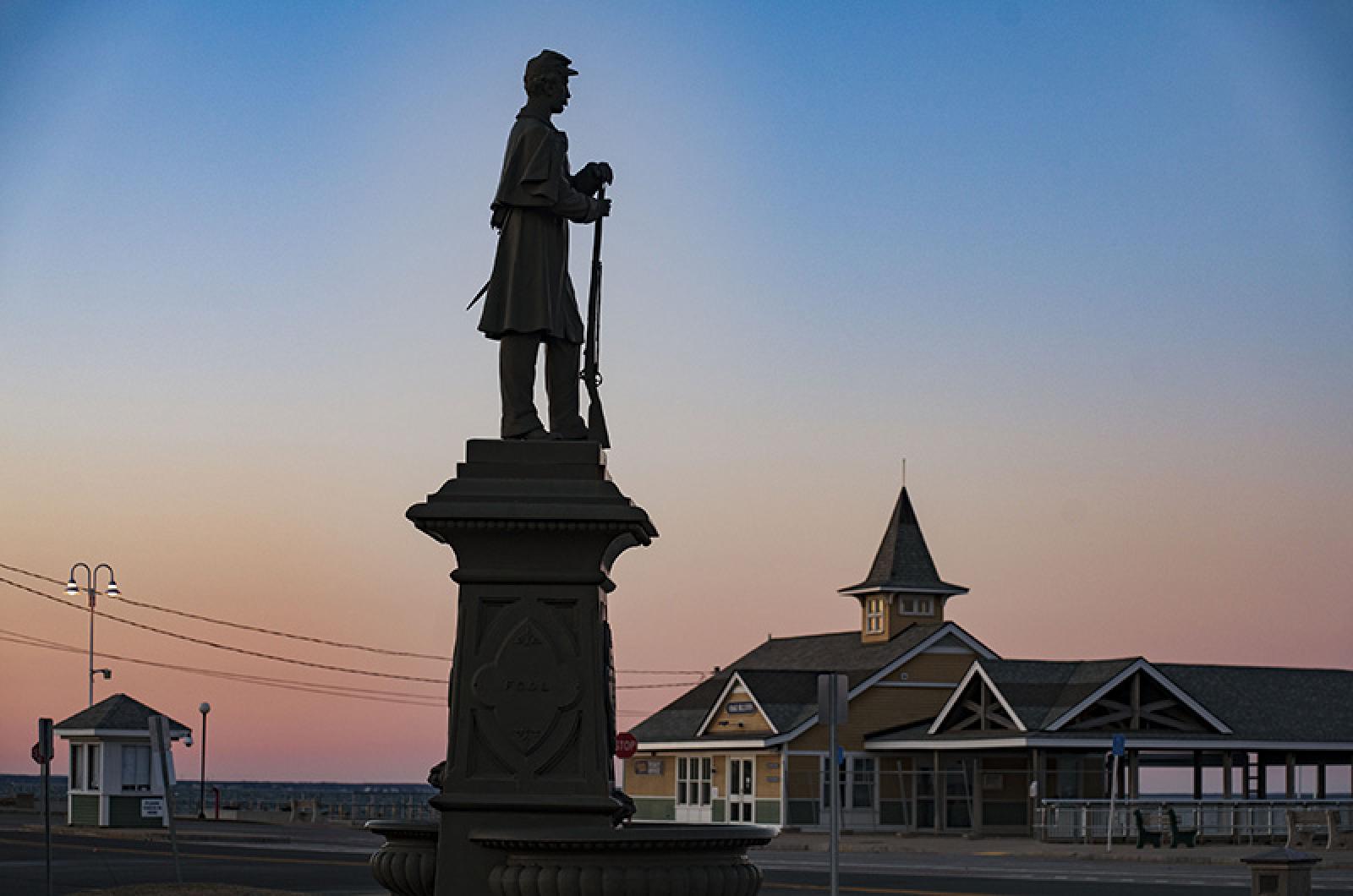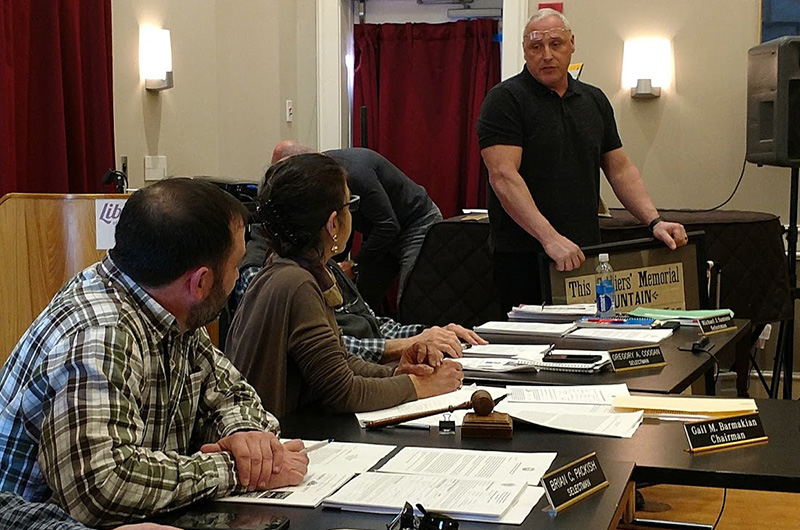In a sometimes tense, sometimes emotional debate at their regular Tuesday meeting, Oak Bluffs selectmen heard arguments for and against a request to remove plaques from a Civil War monument which, in part, honor confederate soldiers.
Selectmen took no action on the request, but agreed to revisit the issue at their next scheduled meeting on April 23.
The request to remove two of the four plaques from the base of a statue representing a union soldier came from the NAACP of Martha’s Vineyard. The organization’s executive committee and its full membership voted unanimously to petition the town, which owns the monument, to remove the references to confederate soldiers. The monument was funded and erected in 1891 by Charles Strahan, a confederate soldier who moved to Martha’s Vineyard and sought reconciliation with his former enemies.
“We honor all veterans,” said Gretchen Tucker Underwood, a member of the NAACP executive committee. “What we do not honor is the confederate army of the United States, which sought to destroy the union army and the union. The words scar me when I hear them, because the source of the words has not gone away for me.”

Clennon King, a seasonal visitor to the Island who lives in Roxbury, said the town has been irresponsible with tax money.
“It’s not about mutual admiration and mutual reconciliation among warring white men,” Mr. King said. “At the heart of it is slavery.”
He said the town risks losing tourists dollars by offending African-American visitors.
“If that money disappears, a whole lot of you will be out of business, a whole lot of you will be unemployed,” Mr. King said. “You don’t want to go there.”
Representing the social action committee of the Martha’s Vineyard Hebrew Center, Dick Cohen said it’s difficult to separate the issues of honoring veterans with soldiers who fought the confederacy.
“Honoring confederate soldiers is so inextricably linked to the cause that they fought for, that it’s hard to divorce the two,” Mr. Cohen said. “These were, after all, the instruments that politicians and the wealthy folks in the south used to fight a war, and the war was to defend slavery.”
A contingent of veterans, many of them from American Legion Post 257 in Vineyard Haven, opposed removing the plaques. Jo Ann Murphy, the Dukes County veterans agent long active in Island veterans affairs, said state law provides official recognition of confederate soldiers as veterans.
“I’m not saying it’s right, I’m not saying I agree with anything that has to do with the confederacy, but I feel that we are speaking of fellow veterans,” Ms. Murphy said. “Whether you like their opinion or what they believed in, they are still veterans.”
Bob Falkenburg of Oak Bluffs said he saw combat duty in Korea, and called war a wasteful, rotten thing. But he does not advocate changing the monument.
“None of the writings or words that were said about this monument by the people who put it up had any racial connotation that I ever heard of,” Mr. Falkenburg said. “It was veterans to veterans. That monument was put up between people who decided it was over and decided to be peaceful and be together. That’s the only reason.”
Selectmen were not eager to decide the issue at Tuesday’s meeting. All five agreed by consensus they needed more time to study the issue. Only one selectman, Greg Coogan indicated an opinion following more than an hour of debate.
“If I were to weigh the hurt here, I have to say the hurt goes for those representing the NAACP,” Mr. Coogan said. “There is still an honoring of the civil war soldiers by keeping that statue there. I would feel that one plaque doesn’t belong there any more. I come away with that sense of hurt more than anything else.”
Others questioned whether the board of selectmen was the proper arbiter of the dispute. Alternatives were suggested, including a series of public forums, a town meeting warrant article, or a ballot vote in the next town election.
“I don’t think of this as a decision of the board of selectmen,” said selectman Michael Santoro. “We need to bring it to more people.”
Selectmen agreed by consensus to decide what method of resolving the dispute they want to pursue at their next meeting, but did not indicate that they would vote on whether to remove the plaques.








Comments (23)
Comments
Comment policy »